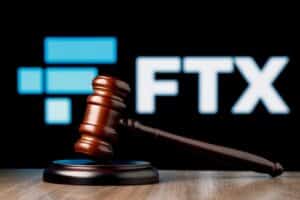
Coinbase’s Chief Executive Officer Outlines Potential Innovations to Pursue in Crypto
Brian Armstrong, Coinbase’s CEO, and cofounder, is having a perfect week owing to the soaring of his firm’s stock value amid the surge of hope for a Bitcoin spot ETF. The achievement explains his generosity in outlining ten upcoming ideas in the cryptocurrency space worth pursuit.
Via a Twitter Spaces monologue that lasted more than 20 minutes, he revealed his intentions to put them out in the ecosystem, hoping other people would become interested. Ryan Selkis, Messari’s chief executive officer, joined the discussion by revealing his perspective concerning every idea.
Armstrong wrote that despite building a lot at Coinbase, they lacked the time to handle everything. As such, he found it necessary to share this. He also stated that bear markets are the most appropriate time for building, thus the need to start within the shortest time possible.
Immediately after the publication of his thoughts, Ryan Selkins, the cofounder of Messari, a crypto market intelligence company, responded to every idea.
CPI-Linked Flatcoin and On-chain Advertising
Armstrong claimed that a flat coin that traces CPI (consumer pricing index) could be a significant chance for the crypto economy to jump in several ways. He suggested that instead of volatile cryptocurrencies or fiat-supported stablecoins, having a decentralized coin that traces the CPI to offer steadiness and resistance to inflation would be better. He claimed that a CPI-associated Flatcoin could aid in the maintenance of smart contracts’ buying power and protect against inflation.
Armstrong recommended tracking the reputation of an entity on the blockchain to counter fraud. He referred to the Ethereum Name Service to claim that a reputation system linked to ENS does not exist. Further, Armstrong suggested an algorithm, for instance, PageRank by Google, that scores blockchain addresses and ENS names by transactions to avert fraud and offer trusted identity. Selkis also replied that he had invested in several projects in that area and linked to portfolio forms The Rabbit Hole and Curious Addys.
Coinbase’s chief executive officer claimed that ‘on-chain adverts’ could charge advertisers following the completion of a particular action instead of only showing an ad. Owing to Web3’s exclusive attributes, doing this may be possible. Further, smart contracts could enhance pay-per-action advertising if transactions entailed alternative referral information.
Selkis claimed that despite investing in Spindl, a crypto ad-tech firm, he had yet to witness several on-chain ad plays.
On-Chain Capital and Layer 2 Privacy Critical Pursuit
According to Armstrong, the creation of chain capital, which entails monitoring capital goods’ net accumulation, for instance, tools, equipment, and energy, could enhance access to fundraising. He proposed tools to aid projects in registering securities, creating entities, and linking to investors to enhance innovation across the globe.
Armstrong suggested the formation of an ‘international labor market’ that utilizes crypto to pay individuals across borders. According to him, the reduced-cost cross-border payments enhanced by cryptocurrency would enable individuals across the globe to earn revenue more effectively.
Selkis claimed that this was associated with the on-chain payroll. He also revealed that if he had known it would remain an unsolved issue, he would have begun this firm instead of Messari in 2017.
Armstrong suggested the need to introduce privacy to layer-2 transactions. This entails significant projects, for instance, Polygon (MATIC), Arbitrum (ARB), and Optimism (OP). He equated the impending change to the transition from HTTP to encrypted HTTPS online. Further, he claimed that alternative, costlier private transactions could acquire mainstream appeal while evading misutilization. Selkis affirmed that the needs were early and obvious.
Pursue Decentralized P2P and Web3 Game Economies
Armstrong claimed that developing an entirely decentralized peer-to-peer exchange atop auditable smart contracts was possible. Additionally, it would be an excellent censorship-resistant answer for reputation, dispute resolution, and escrow. Selkis stated that shutdown occurs following centralization, thus the need for the proper infrastructure to address it.
Armstrong proposed on-chain games that enable users to possess in-game nonfungible token (NFT) assets. In turn, this will develop persistent worlds with actual economies.
In this case, Selkis expressed doubt by claiming that despite being big, he would not just become happy for GameFi. He also revealed that he would not be tormented into becoming happy about it. However, he was ready to change his mind in case of something fun and financialized.
Limitless Opportunities to Tokenize and Establish Network States
The chief executive officer claimed that tokenizing real-world assets would make markets more liquid via encoding homogenous metadata. He added that placing debt on the blockchain could permit decentralized exchange and ratings.
Armstrong used a recently promoted perception by Balaji Srinivasan, a Bitcoin entrepreneur, to claim that ‘network states,’ the descendant of the present’ nation states,’ could be operated similarly to decentralized autonomous organizations (DAOs). He suggested creating tools for fundraising, services, access control, and governance.
He concluded his thoughts with a request to attend October’s first-ever Coinbase Ventures Summit that will happen in Malibu. He explained that they would assemble some builders to deliberate the ideas. Armstrong also called out to persons with existing startups or those intending to develop one.




